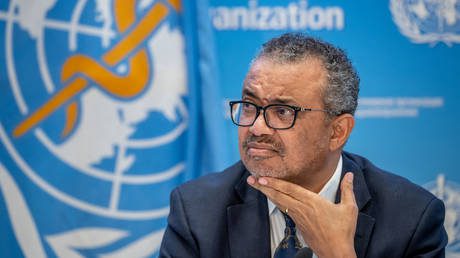Health
WHO: Nigeria Is One Of 55 Countries With A “Most Urgent” Lack Of Health Professionals

According to the international organisation for health, the problems linked to achieving universal health care in these nations are the most severe.
On its Health Workforce Support and Safeguards List 2023, the World Health Organization (WHO) has listed Nigeria along with 54 other nations.
According to the international organisation for health, the problems linked to achieving universal health care in these nations are the most severe.
In particular, these nations have: 1) a density of physicians, nurses, and midwives below the worldwide median (i.e., 49 per 10,000 population); and 2) a universal health care service coverage index below a specified threshold,” WHO stated in the study issued on March 8.
The threshold for the universal health coverage service coverage index for the WHO health workforce support and safeguards list 2023 has been raised from 50 (the value used for the 2020 list) to 55 to take into account the COVID-19 pandemic’s disruptions to health services as well as the effects on health worker mobility and migration.
The African Region category included a total of 37 nations, including Angola, Benin, Burkina Faso, Burundi, Cameroon, Chad, Comoros, Congo, Côte d’Ivoire, Democratic Republic of the Congo, Equatorial Guinea, Eritrea, Ethiopia, and Gabon.
Other nations were the Gambia, Ghana, Guinea, Guinea-Bissau, Lesotho, Liberia, Madagascar, Malawi, Mali, Mauritania, Mozambique, Niger, Nigeria, South Sudan, Togo, Uganda, United Republic of Tanzania, Zambia, and Zimbabwe.
The Eastern Mediterranean Region category included Afghanistan, Djibouti, Pakistan, Somalia, Sudan, and Yemen, whereas the Region of the Americas category only included Haiti.
Bangladesh, Nepal, and Timor-Leste were classified as being in the South-East Asia Region.
The Western Pacific Region group included Kiribati, the Lao People’s Democratic Republic, the Federated States of Micronesia, Papua New Guinea, Samoa, Samoa, Tuvalu, and Vanuatu.
